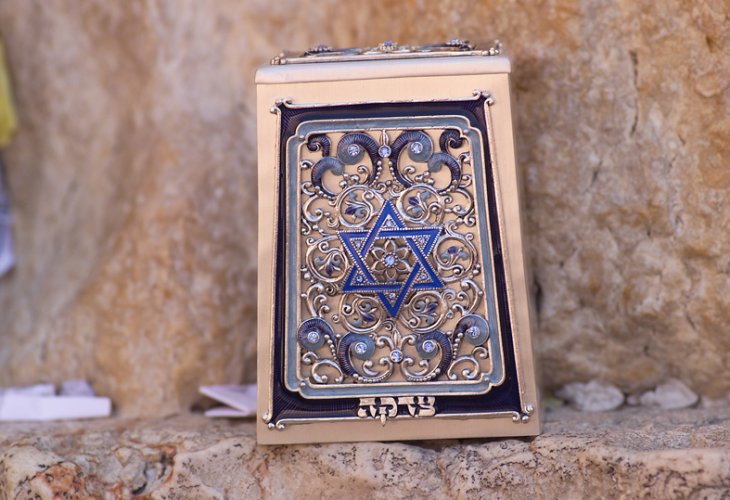Facts in Judaism
The Power of Giving: How Charity Transforms Lives, Primarily Our Own
Charity as Justice, Self-Improvement, and a Spiritual Lifeline: A Deep Dive Into the Rambam's approach
- Eran Ben Yishai
- |Updated

The Torah commands us not only to care for the poor but to do so with open hearts and hands:
"If there shall be a destitute person among you... you shall not harden your heart nor close your hand from your destitute brother. Rather, you shall surely open your hand to him... you shall surely give to him, and your heart shall not be grieved when you give to him, for because of this, Hashem your God will bless you in all your work and in all your endeavors" (Devarim 15:7–10).
The mitzvah (commandment) of tzedaka - commonly translated as "charity" - goes far beyond a simple act of kindness. According to the Rambam, it is a fulfillment of justice. In Sefer Hamitzvot (Positive Commandment 195), the Rambam teaches:
“We are commanded to support the poor and strengthen the weak… the goal in all these verses is one: to sustain the poor among us and provide for them according to their needs.”
But the Rambam goes deeper in Moreh Nevuchim (Part III, Ch. 53) and explains that the very word tzedakah comes from tzedek - justice, not merely kindness. Helping those who have fallen on hard times is not an excessive form of graciousness; it's a baseline obligation. By walking the path of moral excellence, a person not only helps others but also does justice to their own soul.
In other words, giving tzedakah is not just altruism; it is self-perfection. It elevates the giver, shaping him into someone with refined character. Moreover, such acts uplift the entire world. As the Sages taught:
“Great is tzedakah, for since the creation of the world until now, the world stands on tzedakah. And anyone who gives much tzedakah is praiseworthy” (Tanna D’vei Eliyahu Zuta 1:8).
Tzedakah Saves Lives - Literally
King Shlomo said, “Tzedakah saves from death” (Mishlei 11:4). The Sages elaborate:
“How do we know that tzedakah saves a person from death? Because it says, ‘Wealth will not avail on the day of wrath, but tzedakah saves from death.’ When a person gives tzedakah with the intent that the poor should live and not die, so too, Hashem intends that the giver should live and not die” (Tanna D’vei Eliyahu Zuta 1:11).
A powerful story from the Gemara (Bava Batra 11a) demonstrates this principle: There was once a man named Binyamin the Righteous who was in charge of the communal charity fund. During a time of famine, he encountered a woman who begged for help. When he explained that there were no funds left, she cried, “If you don’t support me, my seven children and I will die.” Moved by her desperation, he supported her from his own resources.
Later, Binyamin fell ill and was near death. The ministering angels pleaded before Hashem: “You said that saving one Jewish soul is like saving an entire world. Binyamin saved a mother and her seven children - should he die so young?” In response, Hashem tore up the decree and added 22 years to Binyamin's life.
Tzedakah Brings Blessing and Peace
Rather than diminishing one’s wealth, the Rambam reassures us:
“A person never becomes poor from giving tzedakah, and no harm or damage results from it… as it says, ‘The work of tzedakah will be peace’” (Yeshayahu 32:17; Mishneh Torah, Hilchot Matanot Aniyim 10:2).
The deeper message here is not just about financial security, but about spiritual alignment. Giving brings inner peace, blessings, and Divine protection.
Prioritizing Torah Scholars in Giving
Chazal emphasized that the highest form of tzedakah is directed toward those who toil in Torah. In Kohelet Rabbah (11:1), they state: “If you seek to do tzedakah, do it with those who labor in Torah.”
Rabbi Eliezer Papo, in his classic Pele Yoetz (entry: Tzedakah), echoes this idea:
“I say that part of your responsibility to the poor includes supporting Torah scholars… You fulfill multiple mitzvot at once: tzedakah, honoring Torah and its learners, offering a gift like the bikurim (first fruits), and supporting worthy individuals. How great is the reward!”
This concept is reflected in Kohelet (7:12), “In the shadow of wisdom, in the shadow of money”. The Midrash (Vayikra Rabbah 25:2) explains this verse to mean that in the future, Hashem will create a canopy of honor for those who perform mitzvot, especially those who support Torah scholars.
Far Beyond a Transaction
Tzedaka is not a transaction; it’s a transformation. It elevates the giver, helps the recipient, and brings Divine blessing into the world. Tzedaka isn't only a moral imperative, it's also a spiritual opportunity.

